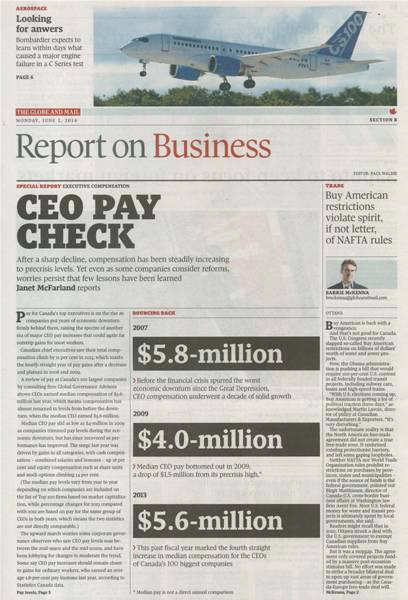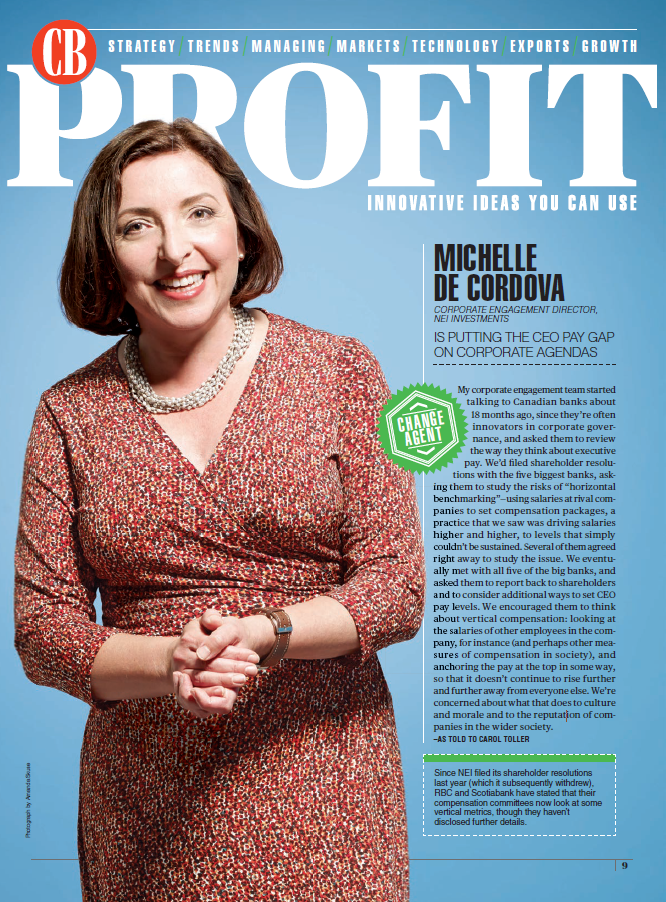NEI Investments
Breaking out of a bubble: mainstreaming socially responsible investing
SITUATION ANALYSIS
Socially Responsible Investing, or SRI, is what some might call a niche product at first glance. Though the concept of responsible investing has been on the rise, the community that manages and advises on SRI products is small and focused, as is their annual industry conference organized by the Responsible Investment Association (RIA).
The RIA Conference, which took place in Toronto in 2014, was sponsored by NEI Investments and Ethical Funds, Canada’s leader in SRI. This is an important event for them and the advisors and academics who work in SRI. But beyond those who specialize in SRI or altruists who have a strong interest in ethical investing, visibility is low.
As a result, one of NEI’s ongoing goals is to raise the profile of SRI as an effective investment option among the advisor community. In order to incite dialogue, NEI also educates investors, encouraging them to ask their advisors about SRI.point of purchase, further increasing sales and positioning Amopé as the #1 contender within the category.
STRATEGY AND INSIGHT
MAVERICK sought to mainstream the conversation around the RIA Conference, drawing people outside of the usual suspects to pay attention to SRI.
Identifying that a closed industry conference itself wouldn’t be a draw for those who weren’t already part of that inner circle, MAVERICK took an issues-based approach.
SRI is linked to key topics of discussion within the media: energy investment, clean tech, executive compensation, board diversity and fair tax. By building business stories around these mainstream topical subjects, MAVERICK aimed to draw attention to the work being done in the SRI space on environmental, social, and governance issues – all the while raising the profile of the industry.
In addition, these concepts are complex and difficult to grasp. It was important to give a human face to the people working on them, to explain what they’re doing, why they’re doing it, and why it’s important.
MAVERICK approached the media leveraging three key business trends related to the topical issues of corporate tax policy, executive compensation and energy investment.
EXECUTIONS
During AGM season in 2014, Google − the company with the mantra “Don’t Be Evil” − was under increasing pressure to revise its corporate tax policy. NEI led the charge to urge the company to behave consistently with its values, shedding light on why aggressive corporate tax avoidance is a growing risk for companies and investors.
At the same time, talk around executive compensation was on the rise in the business community, particularly the damaging impact that excessive compensation can have on a company’s value and performance. There was not much good news around this topic at the time, as most company boards were ignoring shareholder concerns. NEI’s successful engagement with Canada’s five main banks to solidify their commitments to address executive compensation reform was a good news story MAVERICK was able to leverage with the media.
In addition, the most recent report from the Intergovernmental Panel on Climate Change (IPCC) had just been released, begging the question: given what we know now, can the energy industry continue to provide a net benefit to society? NEI’s experience engaging with companies on that very question provided journalists with a strong voice on a complex and confusing issue.
Media conversations were further amplified via social media. Content was curated and designed to engage directly with investors and advisors and included multiple video interviews with presenters and attendees at the conference.
By addressing existing hot topics in the media, linking these issues to proprietary research from NEI regarding investor attitudes and perspectives, MAVERICK drummed up significant interest from media, advisors and investors.
RESULTS
There were, of course, the media hits that earned 12,988,796 impressions. There was also the 228% growth in Twitter followers over the days of the conference, the highest it has ever been for NEI and Ethical Funds accounts.
But beyond that, the program drew the attention of some pretty key people. High-profile thought leaders were brought into the NEI network via Twitter. Key journalists now saw NEI as a go-to source on important topics such as energy investment and executive compensation – relationships that have continued since then.





